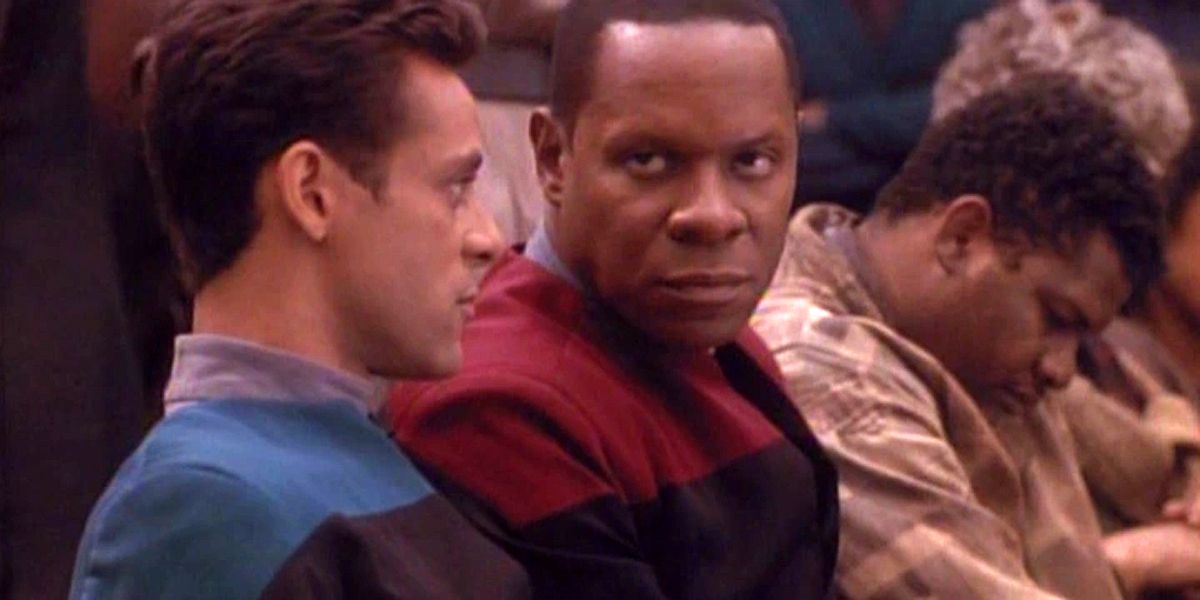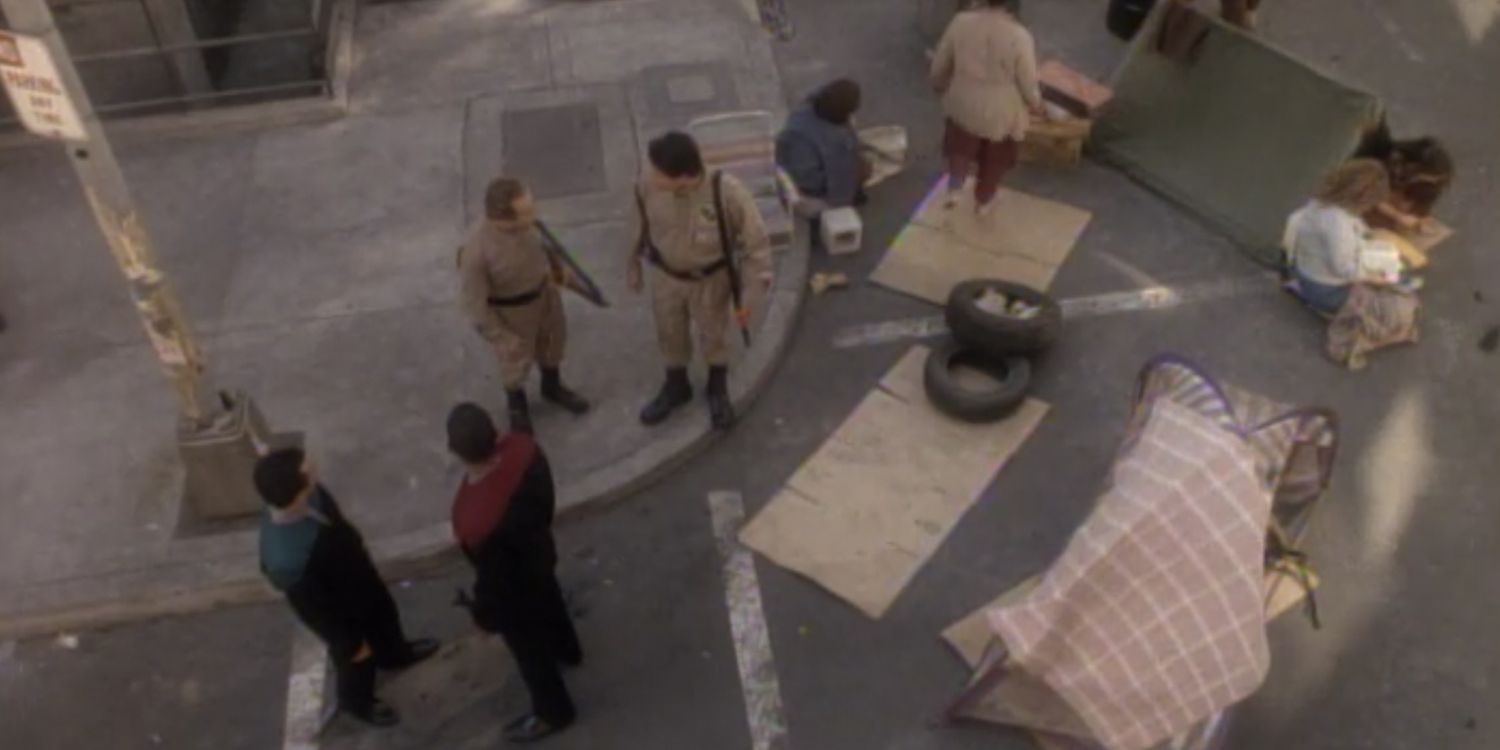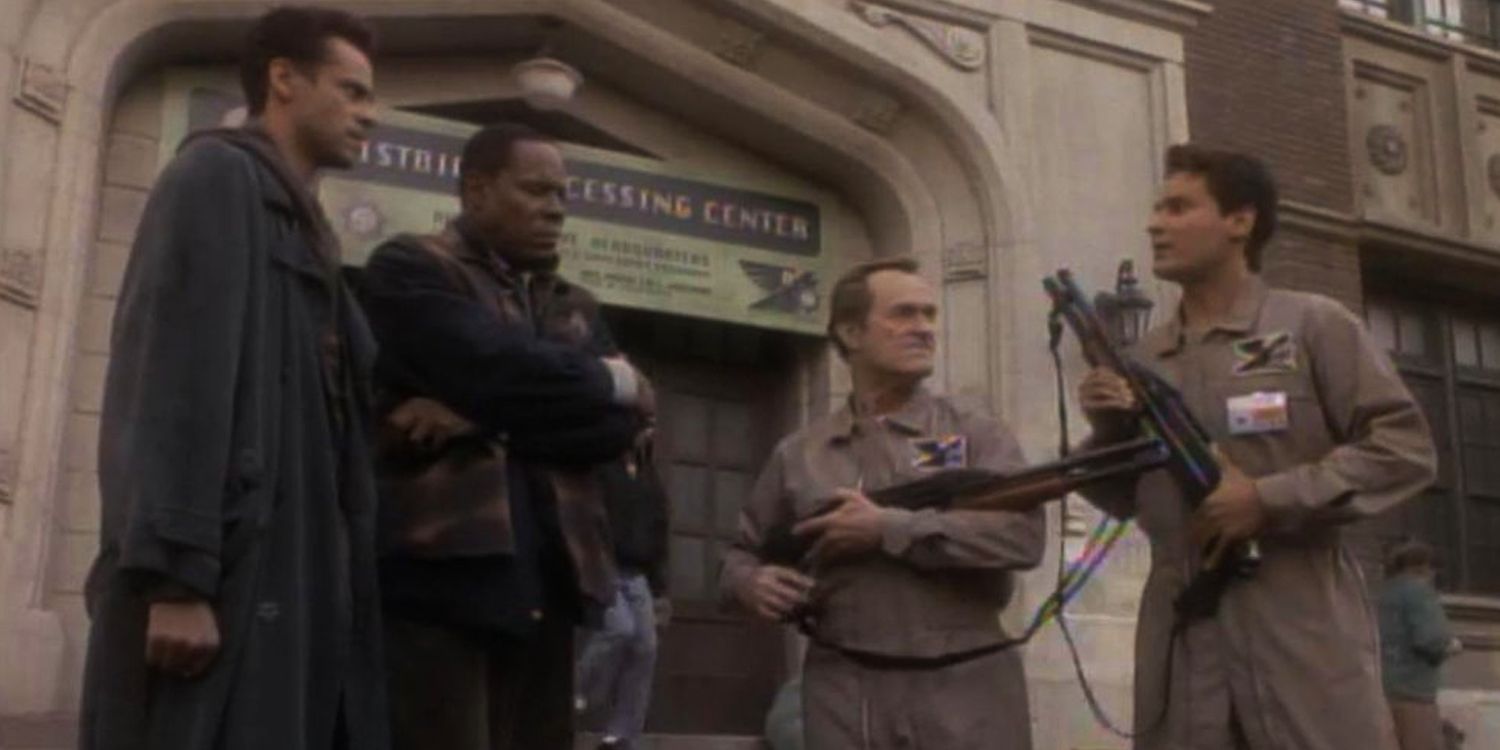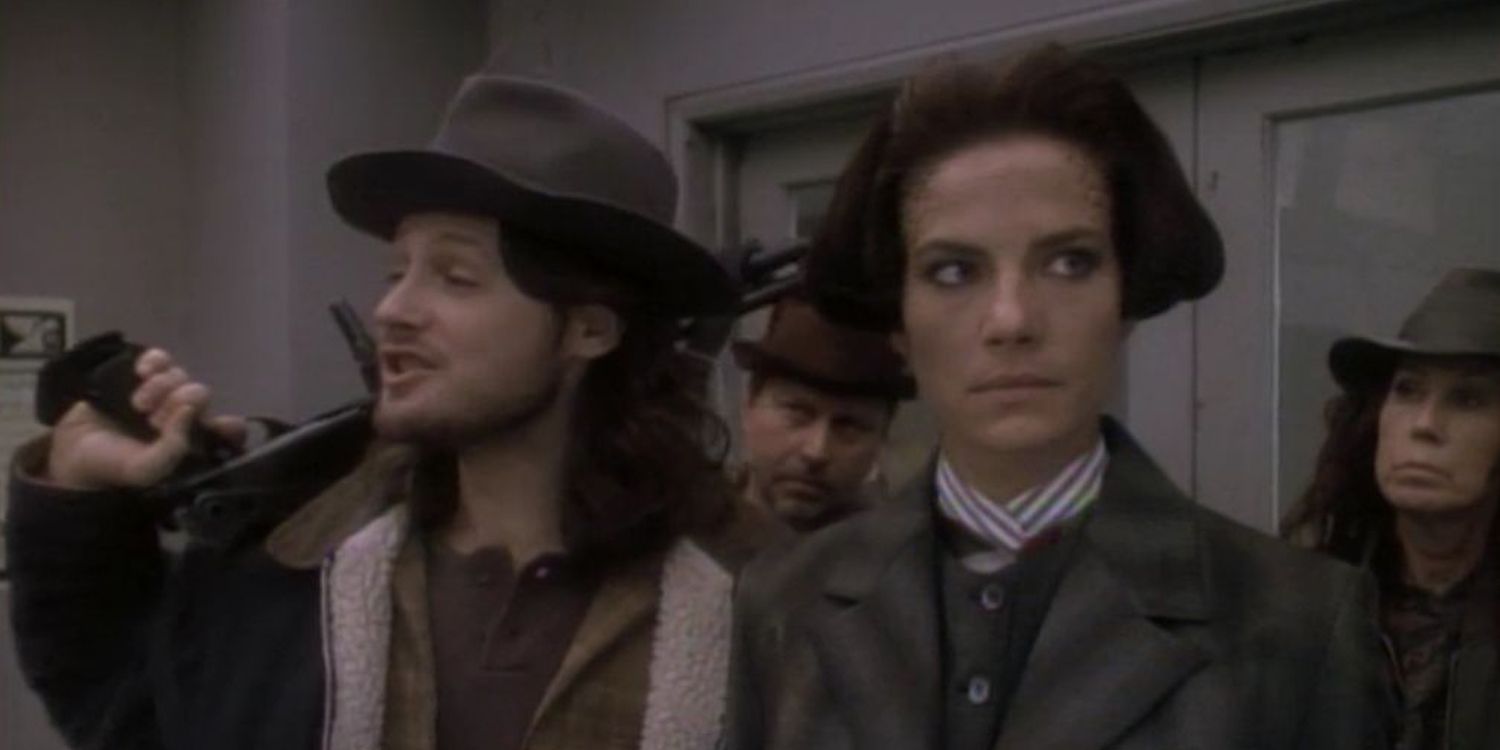Star Trek has endured in pop culture since its debut in 1966 and remains cherished by fans in large part due to its hopeful depiction of humanity’s future. The protection of life and the peaceful pursuit of knowledge are the very core of the Federation. There's an idealism at the core of Star Trek that many fans turn to take comfort in during turbulent times.
Star Trek has never been afraid to take a moral stance and since its inception has used science fiction as a framework to discuss societal issues, even if it makes viewers uncomfortable. The criminally underrated Deep Space Nine is sometimes critiqued for being too heavy, but the point of the series was to show what it actually took to keep the dream of the Federation alive. It justified the necessity of its existence and highlighted the painful lessons humanity needed to learn in order to evolve into the Federation in the first place.
Fans had long known that the creation of warp engines led to first contact with the Vulcans, but that alone didn't make us worthy. We needed to learn to value all life, embracing our differences, and treating everyone as truly equal. That type of growth didn't happen overnight for the humans of Star Trek. In the Deep Space Nine Season 3 two-parter “Past Tense,” we are shown a 21st century eerily similar to our own, and a stark warning of the price for unchecked greed.
In it, Commander Sisko along with Lieutenant Dax and Doctor Bashir are accidentally transported back in time to San Francisco in the year 2024. Almost immediately, Sisko and Bashir are stopped by District Security, a specialized branch of the police. Mistaking their confusion as a sign of mental disability, they refer to them as “dims,” a deeply derogatory term for the handicapped.
By 2024, US citizens were required to carry two forms of identifications: UHC cards to prove they had a job and a home, and a Transit Pass used to prove that a citizen had an intended destination and was not simply a vagrant. Sisko and Bashir had neither and were promptly rounded up by District Security and brought to Sanctuary District A, which we discover is little more than a detention camp.
Bashir is filled with disgust as he points out how many people in the sanctuaries were in need of serious medical attention and humanitarian aid. He doesn't understand how the world could sit by and not provide these people with basic human needs, something easily achievable if we all cooperated. Sisko explains that this period was one of the ugliest in human history and that Sanctuary Districts were one of their greatest mistakes.
In the 2020s, the US government created Sanctuary Districts in every major city in the country, designed to contain anyone without a job as the economy continued to crumble. The sanctuaries housed dims, but most of the inhabitants were regular people from the crumbling middle class who suddenly found themselves without money, jobs or homes. Now reliant on under-funded government services, these folks fallen on hard times were called “gimmes,” viewed by the wealthy as little more than pariahs to be ignored. At this point, people were happy as long as the gimmes and dims were kept off the streets and out of sight. The District Security's only concern was keeping these undesirable people inside the sanctuaries.
These sanctuaries bear an unsettling resemblance to the migrant detention centers currently in Texas. Right now, there are thousands of people in the US enclosed together in unhealthy conditions with no opportunity to improve their lives and no chance of being heard through all the bureaucracy. It's an uncomfortable reality to face, one we largely choose to ignore just as the people of Star Trek's 21st century.
The crew finds themselves present for a pivotal event called the “Bell Riots,” an act of civil disobedience that resulted in the deaths of hundreds of sanctuary residents. Tensions between District Security and resident thugs called "ghosts" reached a tipping point. Ghosts had taken government employees hostage, and Gabriel Bell, a gimme, joined the ghosts acting as a voice of reason to prevent further violence. Bell was able to get footage of the conditions in the sanctuaries onto the web for the world to see.
Despite this, the National Guard is sent in to secure the hostages. After the ensuing bloodbath, the world learns that Gabriel Bell died in the assault protecting one of his hostages. Only after these horrific events took place did the people of the world begin the self-reflection and reform necessary to make way for the birth of the Federation. Until then, the people of the world had yet to be faced with their own callousness. Sisko emphasizes the importance of the Bell Riots as a grim, but necessary step towards the utopian future they take for granted.
While nothing as violent as the Bell Riots has yet to occur, the anger felt by the residents of the sanctuary districts echoes the real anger felt by many Americans today. People feel betrayed by a system that seems to be deaf to all but the most affluent. Regular folks are struggling to get by, and our leaders are doing little to heal the bitter divides that seem to be growing as a result.
The crew is eventually rescued, returning to their proper time and very relieved to find their future intact. Bashir, in particular, was disturbed by the experience, having been ignorant of this part of history up until now. He asks Sisko how the people of the 21st century could have let things get so bad. Sisko can only reply “That’s a good question. I wish I had an answer.”
“Past Tense” first aired in January 1995, and it is disconcerting to see how it is only more relevant 25 years later. When confronted with the stark inequalities we face in our own world, it's just as hard to come up with any sort of acceptable answer. The fact that this dark period in Star Trek history is lining up with a turbulent time in our real history shouldn’t be ignored, but neither should the lesson it tried to impart. The humans of Star Trek learned from their mistakes and came together, despite all odds. If we wish to make it through whatever hurdles the future holds, we must do the same.




